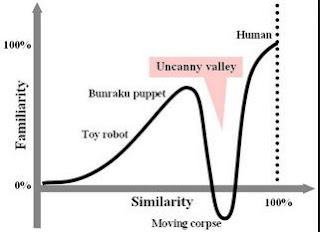I think, with lotteries, slots, and Vegas, we can concede gambling is pretty mainstream. But for some reason when we talk about sports betting it is anything but. There's still - even though it will likely be legalized soon - a stigma that surrounds it. Hell, if you listen to some of the sports leagues, it's like the world will end.
That, in my view, simply is not reality, and never has been reality.
Let me share a little story.
Back in the 70's, my cousin Doug couldn't find work in Southern Ontario where he lived, so he came up north and landed a job at the mines. Needing a place to stay, he lived with us.
Doug worked in the ball mill and it was not exactly mentally stimulating, so he had a lot of time to think. He had bet some sports with a bookie in his town, and decided he should try something along those same lines to try and make a little scratch.
Doug thought that rather than offering single games with large bet sizes where he'd be chasing people all day to pay or collect, he'd create parlay cards with low denominations. Hockey season was around the corner and all he'd need to do was get the cards typed and copied, and sell them. For that he'd need a little help, by the way of my dad, because he had access to the tools needed to make the cards, at work.
"I'm wondering if you'd lend a hand," he asked him. My father, doing the dutiful uncle thing said
no, that's gambling and it's bad, sure he would help out.
Then away Doug went.
He made the puck line cards for the big Saturday slate ("Vegas odds", said Doug, because "if people don't win something they won't come back") and began to sell them.
At the mine these cards went like hotcakes, both on surface and with the underground guys that he'd catch at shift change (and get double the business).
Doug would spend time at the old Empire Hotel on weekends. The Empire - built in I think the 1920's - was a rather bizarre place; maybe not so weird if you grew up where I did, but it was odd to any reasonable person. It was the biggest hotel in the region, and visitors would stay there, but it, well, had a disco bar on one side of the main floor, with a strip joint on the other. Doug became a regular (I think on the disco side) and if you wanted a parlay card, he was there around 6, right near the bar, sipping on a bottle of Molson Export.
Doug also had some family connections. One of our cousins was a sergeant on the local police force and he told Doug
it was illegal and he'd put him in jail if he caught him selling parlay cards he'd sell some to the cops at work for him. The town's police force bought a pile of them each week.
After the bar on Saturdays, Doug would sit at the AM radio trying to catch a signal that gave scores so he could tally how the house did. Most weekends he would do pretty well. In fact, I don't think he ever had a losing weekend.
On Monday, he'd head out to work, pay out to a few boys at lunch and the ones who didn't win would talk about a late goal, or how they got greedy and chose too many games. I'm sure it was not too much different than a bad beat chat on twitter - except with people actually talking face to face.
The following weekend he'd settle up with the folks at the Empire, and with the cops. And everyone would do it all over again.
This was good education for a little six or seven year old kid. A year or two later it came in handy.
In January we were let out for recess, in the usual minus 30 temps, by teachers telling us to stay warm, and to not lick any poles. I heard someone talking about the Super Bowl, which was rare - no one really watched or knew much about the Super Bowl in these parts. It was Paul, and he was holding court.
"The Cowboys are going to win! I'll bet anyone five dollars right now" he exclaimed, to a throng of shivering kids.
I shuffled over and said I'd take that bet. He accepted with a "you better be good for it", which was kind of frightening because I didn't have five bucks, and Paul was a tough fella. He'd have to go to other schools to find kids to fight, because there was no one left who he didn't already beat up at our school.
Fortunately I had Doug, and math. A few days earlier, my cousin told me the spread was the Steelers by seven. Paul didn't mention a point spread, so I was getting +100 on a big chalk. Pure freaking gold.
The Steelers won by four or five, I got my $5, and Paul didn't have to beat me up. Sadly, this represented a high water mark for me as a sports bettor.
Back to the present day, when you and me, who do gamble, see people like @dinkinc or @robpizzola or @insidethepylons on twitter, we think nothing of it. But, to many others, it's like they're doing something they're not supposed to be doing.
They're not. They're doing what the cops, and drinkers, and mine workers, and school children at recess were doing four decades ago. They're gambling on sports. It was a perfectly acceptable behavior then, just as it is now. The only difference is that in 2018, it will probably soon be easier to get a legal bet down.
Have a nice Monday everyone.







